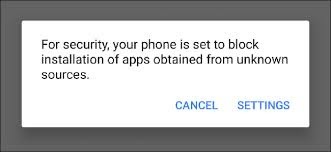How to Protect Yourself From Being Hacked
According to the recent reports (of MAGKE), there will be about 30 billion devices by the end of 2020 which are connected to the internet. Today about 63% of people are familiar with computers, tablets, smartphones, and the Internet. These days many smart devices, like televisions, security cameras, air conditioners, and even refrigerators are connected to the Internet. More devices mean more opportunities for the attacker to attack the system.Protecting Computers and Laptops:
- Make sure security software is up-to-date. ➖ The Operating systems, software, and apps should be up-to-date to the latest security patch provided by the manufacturer of the device or by the software developer.

- Install firewall and antimalware software. ➖ Install a firewall and antivirus software and keep them up-to-date. These programs/software helps in identifying and removing the latest threats and also allow users to manually remove malicious files or software from their device.
- Disable Radio connections when not in use. ➖ Turn off Radios (WIFI, Bluetooth, etc) when not in use. This prevents trace passers from accessing the resource on the devices without one's knowledge.
Protecting Cell Phones:
- Create a strong Lock screen PIN or Password. ➖ Create a strong passcode for the lock screen this may prevent others from accessing any information from the phone. Smartphones powered by google and apple also allow a user to remotely wipe and track the location of the phone in the event of theft.
- Only install trusted applications. ➖ Some hackers make a replica of original apps and add some payload to them. These payloads are capable of gaining and providing administrative rights to the hacker. So to keep yourselves protested and secure, download apps only from trusted sources.

- Keep your software up-to-date. ➖ Smartphone manufacturers and app developers release updates on a regular basis that mostly include security patches and bug fixes so regularly update the apps.
Protecting Online Accounts:
- Delete suspicious emails. ➖ Never open any unknown emails and never download any attachments from any suspicious email. It is better to delete unknown emails without opening them.
- Use secure devices. ➖ If possible, access online accounts only from the personal computer, or smartphone while using a secured Internet connection.
- Create strong passwords. ➖ Don’t use your name or date of birth for your password or any other common words. Never ever use the same password/pin for different accounts. Use combination like👉 Ate$73n!4hd_20. These types of passwords are very hard to crack even by brute force attack.
- Use two-factor authentication. ➖ Two-factor authentication means when you provide the correct password regarding the provided email address then the system will send an OTP on your registered mobile number which is to be filled in the next step to gain access to any account. This means that hackers or any person who somehow manages to know your password can't access your account unless they also have access to the one-time verification code. Many email providers, social media websites, and financial institutions now provide two-factor authentication for an extra layer of security.
- Cautious with URL links.➖Ensure the website where you enter your financial information is secure i.e.(URL should start with “https://” not with "http://"-----remember that the “s” is for “secure”). Where, https = http + SSL. And never open any link from any mail without 100% security about the link.
- Account sign-in alerts.➖When your account is accessed from a new device or unusual location you will get a notification or an email for the same. So, you can react to it accordingly.
In the next blog we are going to learn about: different tools for gathering information about any person, organization, or any website using a phone number or name or by email id.
If you like this article, appreciate this by sharing it with your friends.
Stay tuned and do subscribe for the latest hacking tips and tricks.
Stay tuned and do subscribe for the latest hacking tips and tricks.












